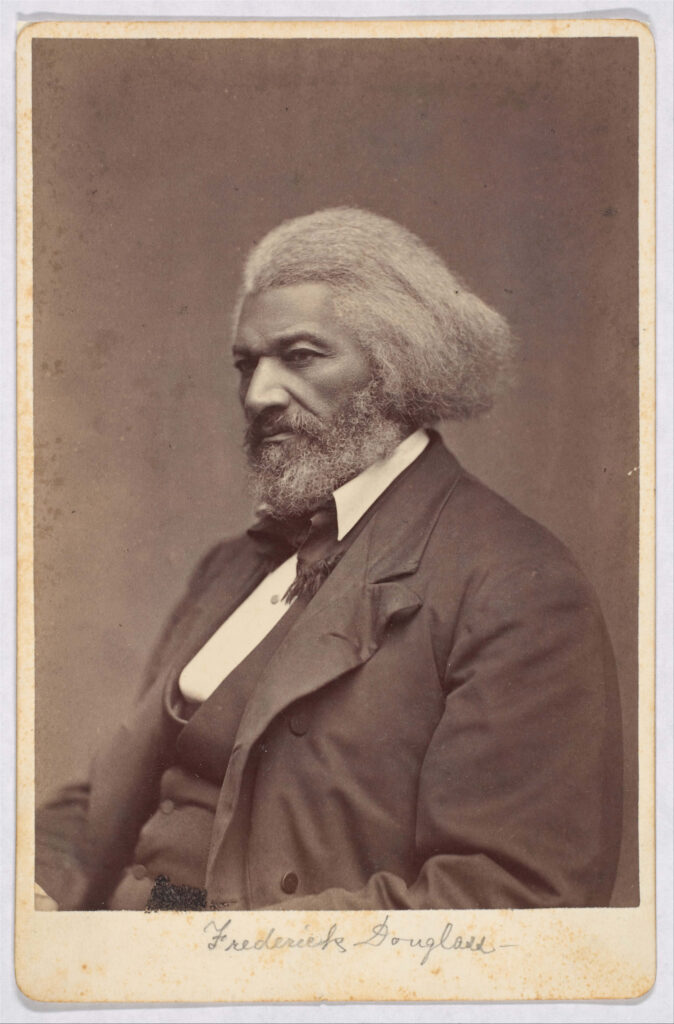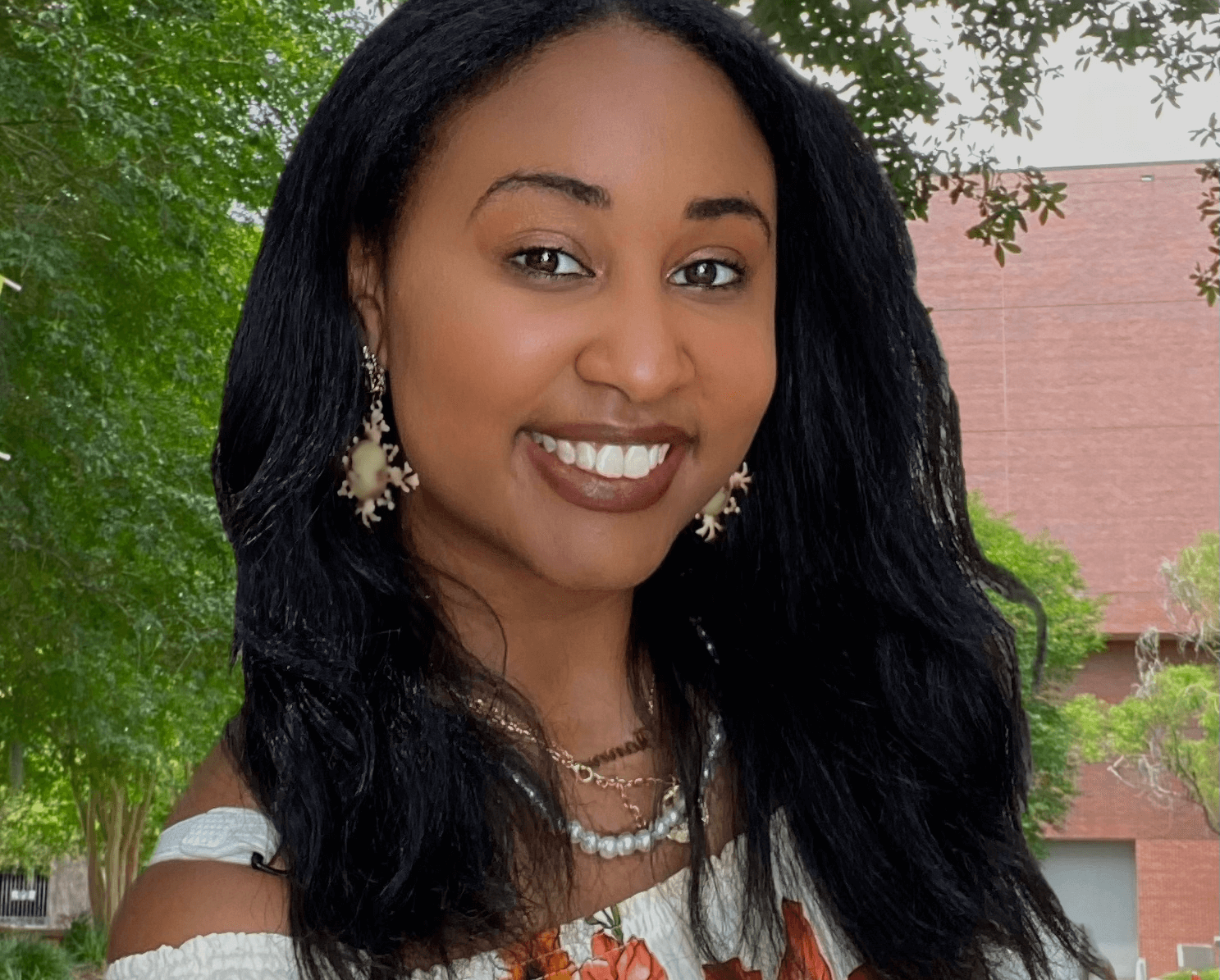Born and raised in Tallahassee, Florida, Tianna Mobley is a master’s student of Comparative, International, and Global History at Georgetown University in Washington DC. In 2019, she spent a semester abroad at the University of Edinburgh, where she conducted an independent research project on black history in Scotland. Last November she decided to launch a podcast.
Current treasured object: Canon camera
Song of the moment: Them Changes by Thundercat
The first thing I noticed when I woke up this morning: Perfect weather for reading outside in my hammock.
Hopefully in the near future, the experiences of underprivileged and underrepresented groups of people will not be untold but rather will become well-known narratives of popular historical discourse.
In November 2020, I launched a podcast, Untold Histories of the Atlantic World, which presents academic research with an activist slant to foreground previously overlooked or oversimplified histories of African and Indigenous experiences throughout the Atlantic world. By emphasising both nuance and connection, my overarching argument is that these histories matter and were integral to the unfolding of Atlantic world processes in the Americas, Africa, and Europe.
In each episode, I invite a scholar or activist to share their research and ask them to explain, in their own opinion, how the subject is an example of an untold or commonly overlooked history, and how it impacts public discourse on topics such as slavery, indigenous rights, social justice, and immigration. My goal is to make history accessible beyond the academy by presenting the stories of underprivileged and underrepresented groups in an easily accessible manner. I want to provide a platform for individuals to tell the untold histories of their own communities in the hope of creating meaningful and lasting change.
Reaching beyond borders
Although the pandemic has made it more difficult to connect with others, I view the virtual interviews on the podcast as an opportunity to reach people beyond pandemic restrictions and national borders, to involve international guests in conversations about these untold histories. In this way, my podcast has become transatlantic in both content and in practice.
I initially created the podcast to serve as my Action Project for the Humanity in Action Fellowship and it has become a true passion of mine that I plan to continue indefinitely. I welcome anyone whose work or personal experiences intersect with the mission of amplifying subaltern voices in the telling of untold stories throughout Atlantic history.
If you are interested in joining me as a guest on the podcast, please contact me at untoldhistoriesatlanticworld@gmail.com or @untoldhistoriesatlanticworld on Instagram.
The Edinburgh connection

In 2019, while still an undergraduate at Georgetown University, I studied at the University of Edinburgh as an international exchange student. This was my first trip outside of the United States and I quickly realised that I could not have chosen a better place to spend the next 6 months. I thoroughly enjoyed taking courses at the university, and to this day still reference the notes from my most influential and enlightening course, Body and Power in Colonial Africa.
Aside from coursework, I also conducted an independent research project on Scottish Black history. I was particularly struck by the rich and complex history of African Americans in Scotland; most well-known are Frederick Douglass and Ida B. Wells-Barnett. I had the opportunity to learn about Douglass’ time in Scotland from Professor Celeste-Marie Bernier who specialises in this history.
I intentionally scheduled trips to cities that were once prominent ports for the transatlantic slave trade and/or had substantial Black populations. In cities such as Bristol, London, Brussels, Faro, Glasgow, and of course, Edinburgh, I visited history museums, art galleries, library archives, and went on Black history walking tours.
Living in Scotland allowed me to view myself within a larger framework of Black internationalism and thus heavily shaped my understanding of my identity as an African American woman. My independent study and personal experiences traveling around the United Kingdom and Europe solidified my interest in comparative Black experiences in the Atlantic world.
Towards well-known narratives
After receiving my B.A. in History from Georgetown, I decided to further my passion for history at the graduate level. I am currently a master’s student of Comparative, International, and Global History at Georgetown. My research focuses on the Black or African Diaspora in the early modern Spanish Atlantic World.
In addition, as a fellow for the White House Historical Association, I have published two articles: Prominent African-American Women and the White House and Ida B. Wells-Barnett: Anti-lynching and the White House. My forthcoming article is on Paul Cuffe, an 18th century African-American whaler and entrepreneur who petitioned President James Madison for a license to trade with the British colony of Sierra Leone, which would become home to various members of the Black diaspora.
These histories and themes, largely influenced by my time in Edinburgh, have become increasingly important in today’s social and political climate, which is why I am motivated to speak and write about them. Hopefully in the near future, the experiences of underprivileged and underrepresented groups of people will not be untold but rather will become well-known narratives of popular historical discourse.
Extra
Tianna’s photography website (external link)
Tianna’s photograph Instagram (external link)



